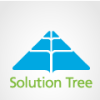
This guest post is written by Michelle Wambach, a principal at Carmichael Elementary School in Sierra Vista, Arizona.

This guest post is written by Michelle Wambach, a principal at Carmichael Elementary School in Sierra Vista, Arizona.

When I wrote my last blog post in January, and made self-assessment my personal learning resolution, I did not know that in a few months my brain would be incredibly tired from learning way too many things in a short amount of time.
I do not need to add any words to the uncertainty that we are all feeling. You know it, and you are all feeling it too. Read more

Based on Small Changes, Big Impact
Recently, I have witnessed more acts of compassion from teachers than ever before in my career.
In my own home, I watched my teenager’s face light up as he opened a hand-written letter from his math teacher, merely saying she was proud of him—nothing about math. I watched as my other son’s second-grade teacher changed the lesson for the day, and instead asked the student to write a thank you note to a community helper. Read more
 1
1
Many readers of this blog will be familiar with the age-old philosophical question that raises a variety of responses regarding what we see and what we perceive:
“If a tree falls in a forest and no one is around to hear it, does it make a sound?” Read more

Okay, I will admit it…the title of this blog post is a little misleading.
Assessment is something that deserves thoughtful and extended consideration. “Quick” has the potential to move teachers and students from valid and reliable assessment to assessment that is surface-level.
However, I also know that when educators decide to shift assessment paradigms and adjust daily practices, looking at the whole assessment topic can seem daunting, and knowing where to start can feel out of our reach. Read more

I think I always knew how important it is to connect the dots as we work to implement new ideas and provide professional development, but recently I was reminded of the crucial nature of making connections to make learning meaningful. Read more

I plan to explore self-assessment with my blogs this year. One of my favorite things about writing for this blog is that it causes me to reflect and formalize my own thinking about assessment topics. Maybe it is all of the talk about resolutions, or the fact that my own resolutions have not quite taken hold (Sorry elliptical machine! I promise to visit you soon!), or this looming birthday of mine, but the pulls of both reflection and action are pretty strong right now. Read more

It’s widely supported that using common formative assessments is one of the best ways to systematically improve student learning (DuFour et al. (2016); Reeves, 2004; Ainsworth, 2007). The impact of these assessments is best realized when teams collaboratively unwrap the essential standards into smaller learning targets, use formative measures to monitor student learning of those targets, and use the results to engage students with meaningful feedback and support to propel learning forward (Bailey and Jakicic, 2019). Read more
 1
1
We, more often than not, define the term “standard” as “something someone needs to know or be able to do.” We use this definition to develop curriculum, create assessments, plan instruction, and provide feedback to students and parents. No one can be sure when we started subscribing to this definition; however, we do know it is in direct opposition to the dictionary’s definition. The Oxford English Dictionary defines a standard as ”something set up as a rule for the measure of quality.” So, which is it?
In this brief article, I argue that the dictionary has it right. Further, I assert that it is our responsibility as educators to align our pedagogical practices to the dictionary meaning to ensure that our standards are, in fact, standards. Read more

The title of this post is intentionally provocative, and since you’re reading it, there might be some ideas rattling around in your head that might be aligned with that provocation. Let me be clear from the outset, however, that I am not on a rant to eliminate high-quality, effective evidence gathering.
I do struggle, though, with the pursuit of numbers simply for the purpose of rank and sort, or mathematical computation as per a formula or computer program. Educators are familiar with the work of Professional Learning Communities (PLCs) and the four questions originally defined by the DuFours and Eaker. I want to zero in on questions 3 and 4: Read more